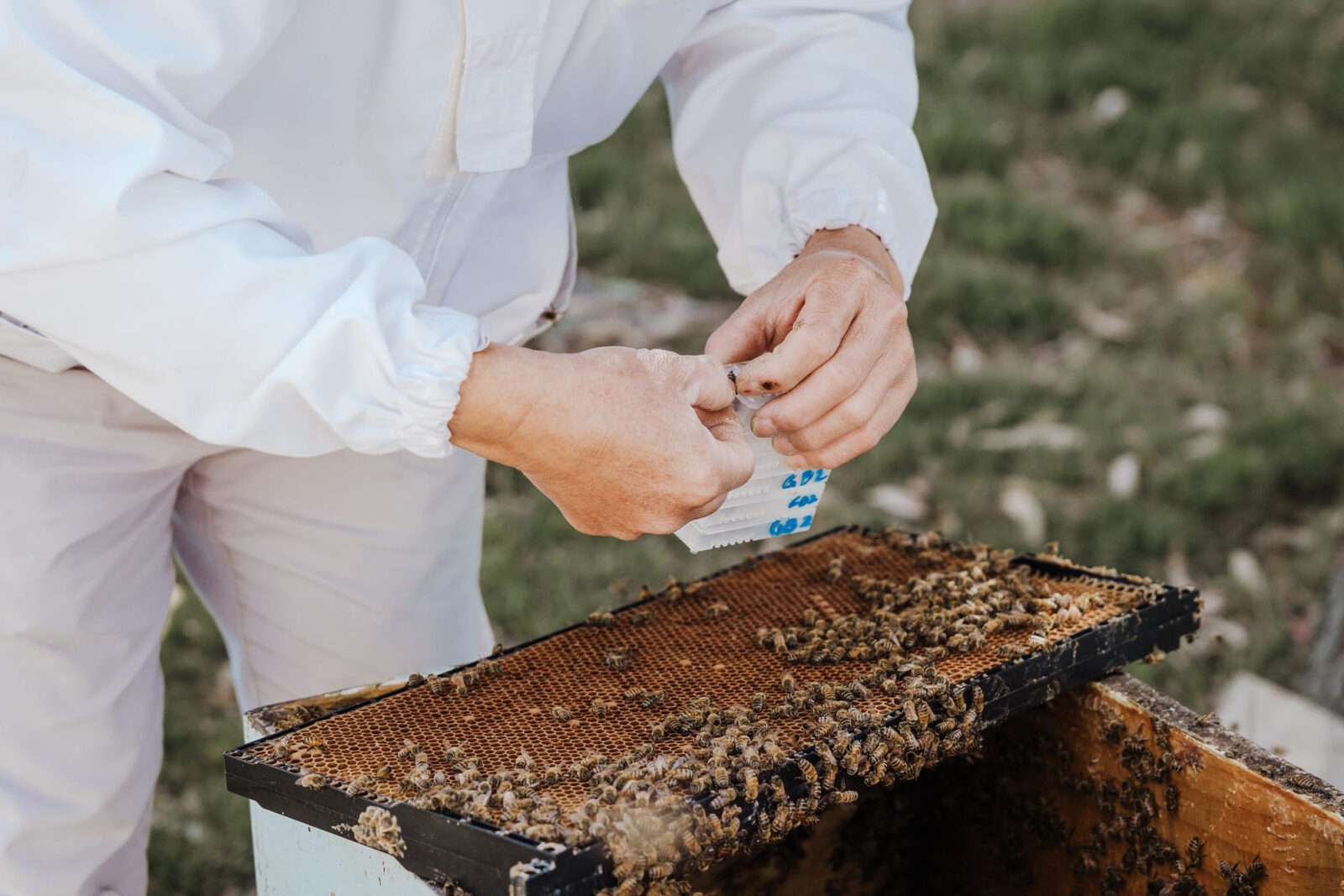Applications open for the 2026 AgriFutures Rural Women’s Award
 HONEY BEE & POLLINATION / Monday, 10 February 2025
HONEY BEE & POLLINATION / Monday, 10 February 2025
National survey launched to tackle Varroa mite threat to honey bees

Australia’s beekeepers are being urged to complete the Australian Colony Loss Survey as part of a national effort to understand the impact of the Varroa mite (Varroa) outbreak and improve hive health management.
The survey is a crucial step in building a long-term dataset to support industry and government action to safeguard the agricultural industries dependent on the Australian honey bee population. The survey will collect vital data on beekeeping practices, colony losses, and the costs and effectiveness of different Varroa management strategies.
Reaching Australian shores in 2022, Varroa is expected to cause significant and widespread declines in honey bee populations, impacting the honey bee industry and also a wide range of agricultural crops that rely on pollination.
Australian Honey Bee Industry Council (AHBIC) CEO, Danny Le Feuvre, emphasised the importance of the survey in tracking and mitigating Varroa’s impact.
“The Australian Colony Loss Survey will deliver invaluable baseline data that will help us understand and monitor hive health,” Mr Le Feuvre said.
“This data will be crucial for decision-making by governments and industry stakeholders and will be used to inform future research and policy decisions, ultimately benefiting the entire beekeeping community.
“Importantly, the survey will also provide a fantastic peer to peer learning opportunity as beekeepers will be able to see how other beekeepers are managing varroa.
“We are excited to see the positive impact the survey will have on our industry and how we can continue to work with others for the benefit of the industry.”
The survey will also have global significance, as it includes pre-Varroa data, offering unique insights into colony losses and beekeeping trends in Australia. This baseline will serve as the foundation for future annual surveys, enabling long-term monitoring of honey bee health.
The project is part of the National Varroa Transition to Management Program and managed by AHBIC and the AgriFutures Honey Bee & Pollination Program. The survey is led by a research consortium at the Australian National University (ANU).
Project Manager, ANU, Dr Michael Holmes, is calling on all beekeepers to participate.
“The survey is about your beekeeping experience from 2023-24 beekeeping season and is for everyone who keeps bees in Australia,” Dr Holmes said.
“Whether you are a large-scale commercial beekeeper or have one hive in your backyard; whether you lost all of your hives or none of them in the past year, the information you provide will be crucial to identify trends in Australian beekeeping.
“We need as many beekeepers as possible to complete the survey so that we can identify trends in Australian beekeeping and understand the impact of Varroa, other pests and diseases and other issues faced by Australian beekeepers.”
How to participate
The survey is voluntary, anonymous, and takes approximately 7-15 minutes to complete. The survey closes on 10 March 2025.
For further information please contact: Dr Michael Holmes, Project Manager, ANU College of Science at
To complete the survey, visit Australian honey bee colony loss (COLOSS) survey
-ENDS-
Media enquiries:
Ingrid Lee-Scott
Dentsu Creative Public Relations
0410 047 767
Latest News
-
Applications open for the 2026 AgriFutures Rural Women’s Award WORKFORCE AND LEADERSHIP / 10.02.25
WORKFORCE AND LEADERSHIP / 10.02.25 -
Brewing an Australian Future: The Rise of Locally Grown Coffee COFFEE / 10.02.25
COFFEE / 10.02.25 -
New one-stop-shop to help producers navigate sustainability opportunities NATIONAL CHALLENGES AND OPPORTUNITIES / 10.02.25
NATIONAL CHALLENGES AND OPPORTUNITIES / 10.02.25 -
Works start on multi-million dollar world-class rice breeding facility at Leeton RICE / 10.02.25
RICE / 10.02.25






